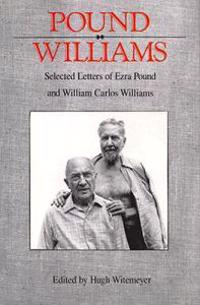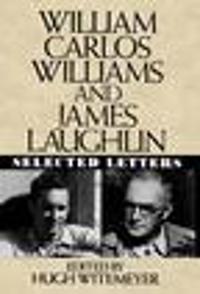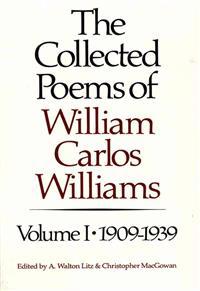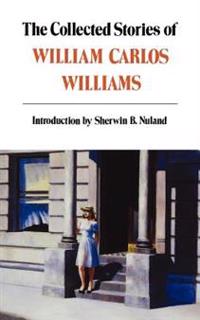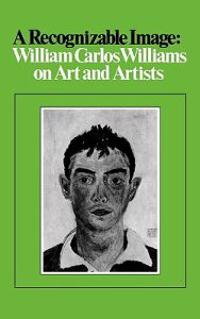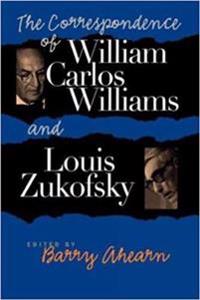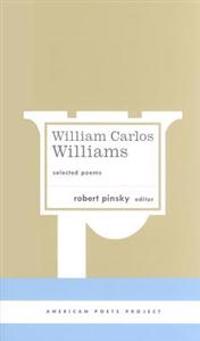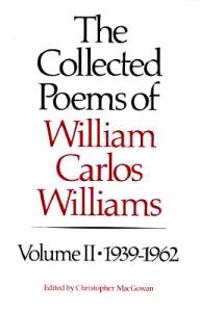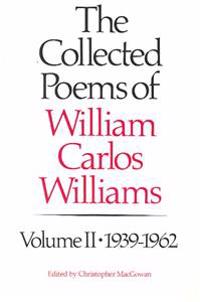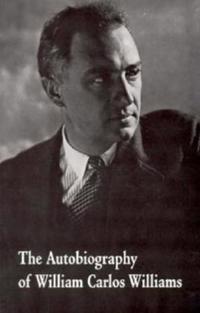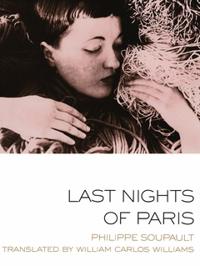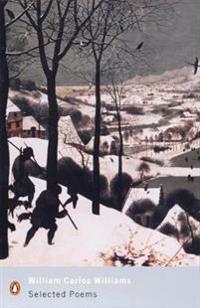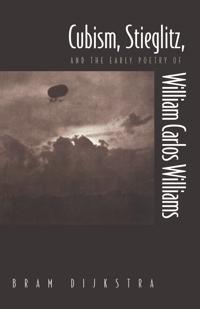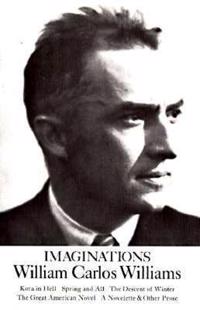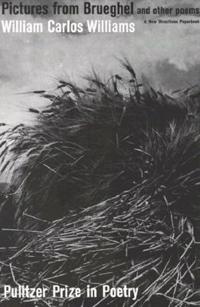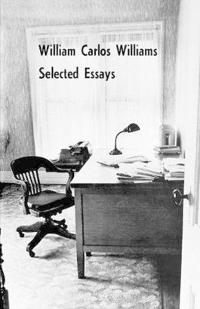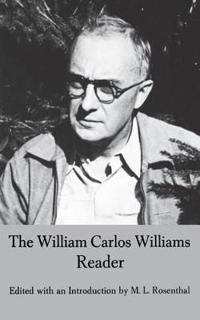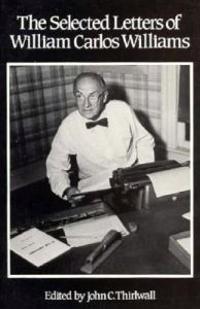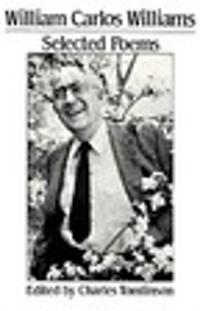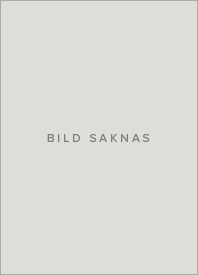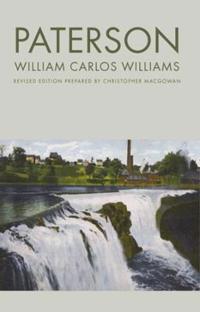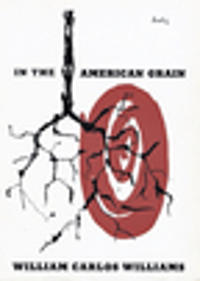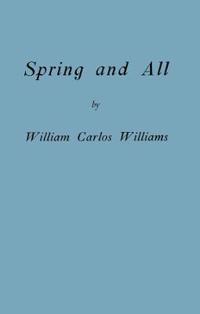Pound/Williams: Selected Letters of Ezra Pound and William Carlos Williams (Inbunden)
avEzra Pound, William Carlos Williams, Hugh Witemeyer
ISBN: 9780811213011 - UTGIVEN: 199605William Carlos Williams and James Laughlin Selected Letters (Inbunden)
avWilliam Carlos Williams
ISBN: 9780393026825 - UTGIVEN: 1989-08The letters discuss modernism, art, publishing, and the writer/editor relationship between the two men.[...]
The Collected Poems of William Carlos Williams: 1909-1939 (Häftad)
avWilliam Carlos Williams, Christopher MacGowan, A. Walton Litz
ISBN: 9780811211871 - UTGIVEN: 199109Gathers, chronologically, all the major poems of Williams' career
Collected Stories of William Carlos Williams (Häftad)
avWilliam Carlos Williams
ISBN: 9780811213288 - UTGIVEN: 199607.
A Recognizable Image: William Carlos Williams on Art and Artists (Häftad)
avWilliam Carlos Williams
ISBN: 9780811218597 - UTGIVEN: 1978-01The Correspondence of William Carlos Williams & Louis Zukofsky (Inbunden)
avBarry Ahearn, William Carlos Williams, Louis Zukofsky
ISBN: 9780819564900 - UTGIVEN: 2003-12Renowned poet William Carlos Williams and literary innovator Louis Zukofsky maintained a relationship through correspondence as both collaborators and friends between 1928 and 1963. Their letters have remained largely unpublished until now. Edited by Barry Ahearn, The Correspondence of William Carlo[...]
William Carlos Williams: Selected Poems (Inbunden)
avWilliam Carlos Williams, Robert Pinsky
ISBN: 9781931082716 - UTGIVEN: 2004-10The Collected Poems of Williams Carlos Williams: 1939-1962 (Inbunden)
avWilliam Carlos Williams, Christopher MacGowan
ISBN: 9780811210638 - UTGIVEN: 198806The Collected Poems of Williams Carlos Williams: 1939-1962 (Häftad)
avWilliam Carlos Williams, Christopher MacGowan
ISBN: 9780811211888 - UTGIVEN: 199109.
Autobiography of William Carlos Williams (Pocket)
avW. C. Williams
ISBN: 9780811202268 - UTGIVEN: 1967-06Last Nights of Paris (Pocket)
avPhilippe Soupault, William Carlos Williams, William Carlos Williams
ISBN: 9781878972057 - UTGIVEN: 199302Selected Poems (Storpocket)
avCharles Tomlinson, William Carlos Williams
ISBN: 9780141184340 - UTGIVEN: 200009In his work as a physician, Williams had learnt the skill of objective observation which he applied to his poetry, examining, as he said, 'the particular to discover the universal'. Marked by a vernacular American speech and direct observation of the landscape and people of his native New Jersey, hi[...]
William Carlos Williams and the Diagnostics of Culture (Inbunden)
avBrian A. Bremen
ISBN: 9780195072266 - UTGIVEN: 1993-04-29Cubism, Stieglitz, and the Early Poetry of William Carlos Williams
ISBN: 9780691013459 - UTGIVEN: 1978-07Previous studies of William Carlos Williams have tended to look only for the literary echoes in his verse. According to Bram Dijkstra, the new movements in the visual arts during the 1920s affected Williams's work as much as, if not more than, the new writing of the period. Dijkstra catches the exci[...]
Imaginations (Häftad)
avWilliam Carlos Williams
ISBN: 9780811202299 - UTGIVEN: 197102Five early works by the enigmatic American writer reveal the beginnings of his intensive search for a new prose style[...]
Selected Essays of William Carlos Williams (häftad)
ISBN: 9780811202350 - UTGIVEN: 1969-01Throughout his life, Dr. Williams tirelessly defended and promoted the best in modern literature and art. He contributed widely to leading literary magazines, wrote prefaces and introductions, and lectured at many universities. This selection represents his finest work in criticism. Much of it conce[...]
Selected Poems (Häftad)
avWilliam Carlos Williams, Charles Tomlinson
ISBN: 9780811209588 - UTGIVEN: 198509Paterson (Inbunden)
avWilliam Carlos Williams, Christopher MacGowan
ISBN: 9780811212250 - UTGIVEN: 199211Paterson is both a place the New Jersey city in whom the person (the poet's own life) and the public (the history of the region) are combined. Originally four books (published individually between 1946 and 1951), the structure of Paterson (in Dr. Williams' words) "follows the course of teh Passaic R[...]
Paterson (Häftad)
avWilliam Carlos Williams, Christopher MacGowan
ISBN: 9780811212984 - UTGIVEN: 199504.
In the American Grain (Pocket)
avWilliam Carlos Williams, Rick (INT) Moody, Horace (AFT) Gregory
ISBN: 9780811218498 - UTGIVEN: 2009-10Although admired by D. H. Lawrence, this modern classic went generally unnoticed during the years after its publication in 1925. Yet it is a fundamental book, essential if one proposes to come to terms with American literature (Times Literary Supplement). William Carlos Williams was not a historian,[...]

